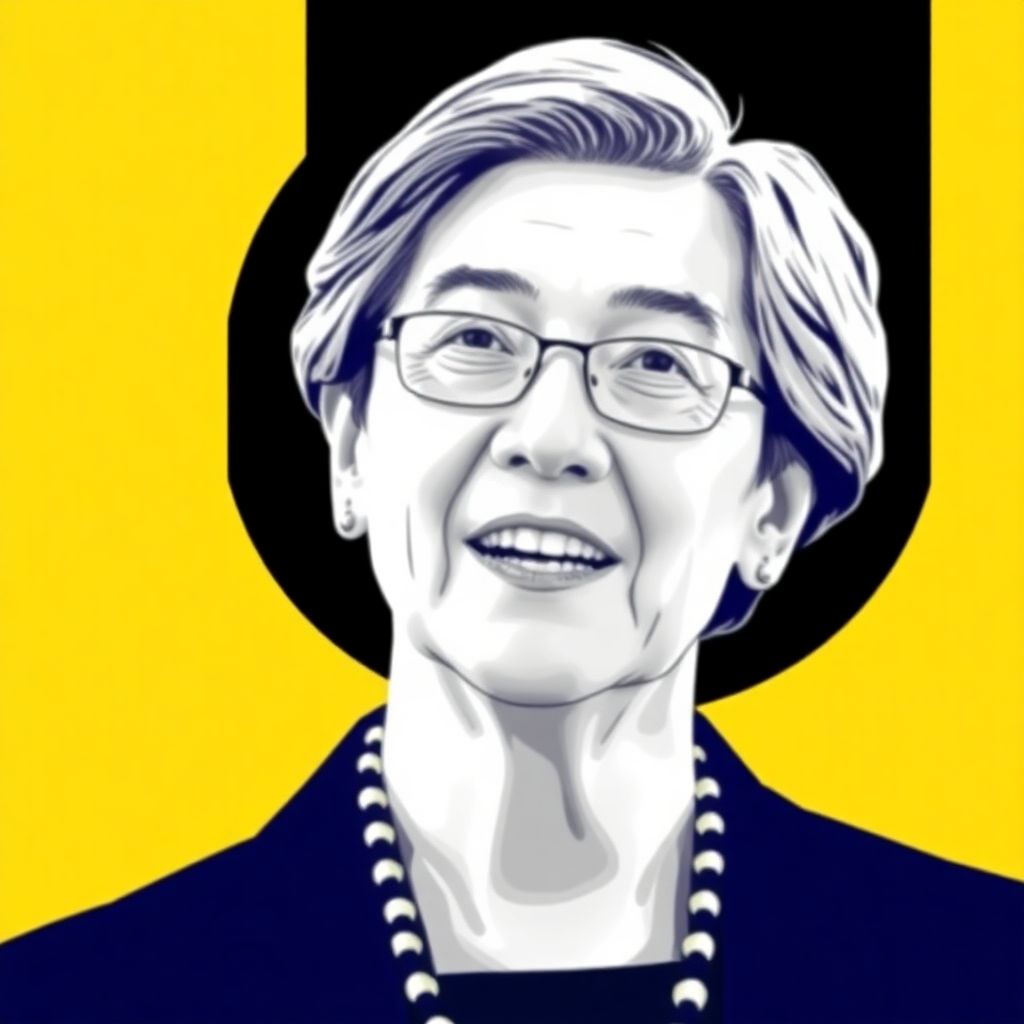Binance founder Changpeng Zhao, widely known as CZ, is reportedly preparing legal action against U.S. Senator Elizabeth Warren following her controversial social media post accusing him of money laundering. The dispute has ignited a heated debate at the intersection of politics and the cryptocurrency industry, raising questions about legal boundaries, misinformation, and the implications of political rhetoric in a rapidly evolving financial landscape.
At the heart of the conflict lies a post Senator Warren made on platform X (formerly Twitter), where she stated that CZ admitted to “criminal money laundering” and subsequently used his financial influence to secure a presidential pardon from Donald Trump. According to Warren, after being convicted, Zhao funded a stablecoin project associated with Trump and lobbied for clemency. Her post ended with a stark warning: “If Congress does not stop this kind of corruption, it owns it.”
However, Zhao’s legal team, led by attorney Teresa Goody Guillen, has strongly refuted these claims. They argue that Warren’s statement is factually inaccurate and defamatory. In response, they have formally demanded a public retraction from the senator. If no correction is issued, Zhao intends to file a defamation lawsuit — a move that could potentially set legal precedent regarding the limits of political speech in the digital era.
The controversy erupted shortly after former President Trump granted Zhao a full pardon, lifting the remaining penalties from his 2023 settlement with the U.S. Department of Justice. While Zhao did plead guilty to violating the Bank Secrecy Act by failing to implement sufficient anti-money laundering protocols at Binance, he was not charged with directly laundering money. As part of the agreement, he paid a $50 million fine and served a four-month prison sentence. Binance, the company he founded, was fined a record $4.3 billion.
Despite this legal nuance, Senator Warren’s post suggested Zhao had personally laundered funds, prompting immediate backlash from legal experts and free speech analysts. Platform X even appended a community note to the senator’s post, clarifying that Zhao was not convicted of money laundering, but rather for failing to prevent it through proper oversight.
The central legal question now hinges on whether a sitting U.S. senator can be held liable for defamatory statements made outside the context of official duties. While the Speech or Debate Clause of the U.S. Constitution grants congressional members immunity for comments made as part of their legislative role, this protection does not extend to public remarks shared via social media or in press releases. Guillen emphasized this distinction, stating, “Immunity does not equal impunity.”
Should this case proceed, it could establish a significant precedent about the boundaries between political discourse and personal reputation, especially in digital spaces. It may also influence how policymakers approach public commentary related to private citizens and companies within the crypto sector.
This incident is the latest flashpoint in a growing ideological clash between Democratic lawmakers and the cryptocurrency industry. Following Zhao’s pardon, both Senator Warren and Representative Adam Schiff called for an investigation into possible financial ties between Trump and the crypto sector. The inquiry, also supported by Senators Bernie Sanders and Chris Van Hollen, questions whether the pardon was politically and financially motivated.
In contrast, Republican lawmakers have criticized the Democratic push as a politically charged maneuver aimed at demonizing the crypto industry. They argue that such accusations undermine innovation and alienate a growing base of tech-savvy investors.
Market reactions to the controversy have been swift. After news of Zhao’s pardon broke, Bitcoin’s price saw a notable uptick, reflecting investor optimism. Analysts are now closely watching how political developments may continue to affect market sentiment, with many pointing to “political risk” as a new variable in cryptocurrency valuation models.
The tension between regulatory oversight and technological innovation is not new, but it is becoming increasingly pronounced. Cryptocurrency advocates argue that intense political scrutiny and misinformed attacks could stifle growth in a sector that has already demonstrated transformative potential. They call for clearer regulations and a collaborative approach, rather than what they see as punitive political theater.
Meanwhile, the crypto community continues to evolve. A new generation of investors, developers, and entrepreneurs is entering the space, demanding more transparent governance, robust compliance protocols, and greater political independence. Many are pushing for decentralized financial systems specifically to avoid concentrated political influence.
This case also sparks broader discussions about misinformation and accountability on social media, particularly when public figures use platforms to make sweeping accusations. As digital communication becomes central to public discourse, the legal landscape must adapt to ensure that truth and fairness are preserved, regardless of political affiliation.
If Zhao moves forward with his lawsuit and it makes its way through the courts, it could serve as a landmark case defining how far elected officials can go when commenting on individuals or businesses outside the legislative chamber. It may also compel lawmakers to be more precise and evidence-driven in their public communications, particularly in volatile sectors like cryptocurrency.
In the long run, this situation underscores the urgent need for a balanced dialogue between the crypto industry and regulatory bodies. Rather than engaging in adversarial conflicts, both sides could benefit from structured collaboration aimed at protecting consumers while fostering innovation.
Until then, the showdown between CZ and Senator Warren remains a symbol of a deeper struggle—one between traditional political authority and the decentralized, often misunderstood world of digital finance.

